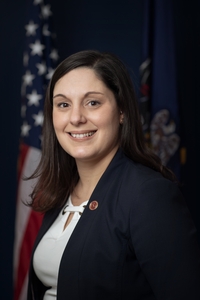
By Dave Workman
Editor-in-Chief
Pennsylvania State Sen. Amanda M. Cappalletti (D-17th District) has announced she will reintroduce SB 637, calling for waiting periods on firearm purchases, and she is asking fellow lawmakers to join her as co-sponsors.
In a news release, Cappalletti declared waiting periods are supported by the National PTA, American Medical Association, Giffords Law Center and “a majority of Americans and firearms owners.”(
But do waiting periods actually work to reduce violent crime, accidents or suicides?
According to a Rand research effort, “Considering these studies and our assessment of their strengths, we find limited evidence that waiting periods may reduce firearm homicides.”
The National Rifle Association reports, “There is no evidence that waiting periods reduce suicides, homicides, or mass shootings. No studies that identify causal effects have been identified by any of the independent literature reviews conducted since 2004.”
That’s not stopping Cappalletti, who asserts in her news release, “By delaying immediate access to firearms, waiting periods can help prevent impulsive acts of firearm violence, including firearm homicides and suicides. Ten states, including New Jersey and Maryland, and the District of Columbia have waiting periods that apply to the purchase of at least some types of firearms. ”
According to WTAJ, Cappalletti’s proposal would create a 72-hour waiting period on firearms purchases in Pennsylvania.
“Research has shown that waiting period laws reduce both suicides and violent crime,” she claims. ”Many studies suggest that most suicide survivors, for example, contemplated their actions for only a brief period of time—often less than 24 hours—before making a suicide attempt. More than 60 percent of firearm deaths are suicides; reducing a suicidal person’s access to highly lethal means is an important part of a comprehensive approach to suicide prevention. Similarly, studies suggest that some of the factors that incite violence against others, such as anger and rage, can be short-lived.”
But according to Rand, “Nine studies evaluated the relationship between waiting-period laws and homicides or violent crime. While the direction of effects varied across studies (two found that waiting-period laws increased homicides), the three methodologically stronger studies either found uncertain effects or that mandatory purchase delays significantly reduced total or firearm homicides.”
When it comes to mass shootings, Rand says, “Three studies evaluated the relationship between waiting periods and mass shootings or mass murders. These studies found uncertain effects on mass shootings or significantly more mass killings in states with waiting-period laws, but all studies had serious or critical limitations that raise questions about the reliability of their findings.”



